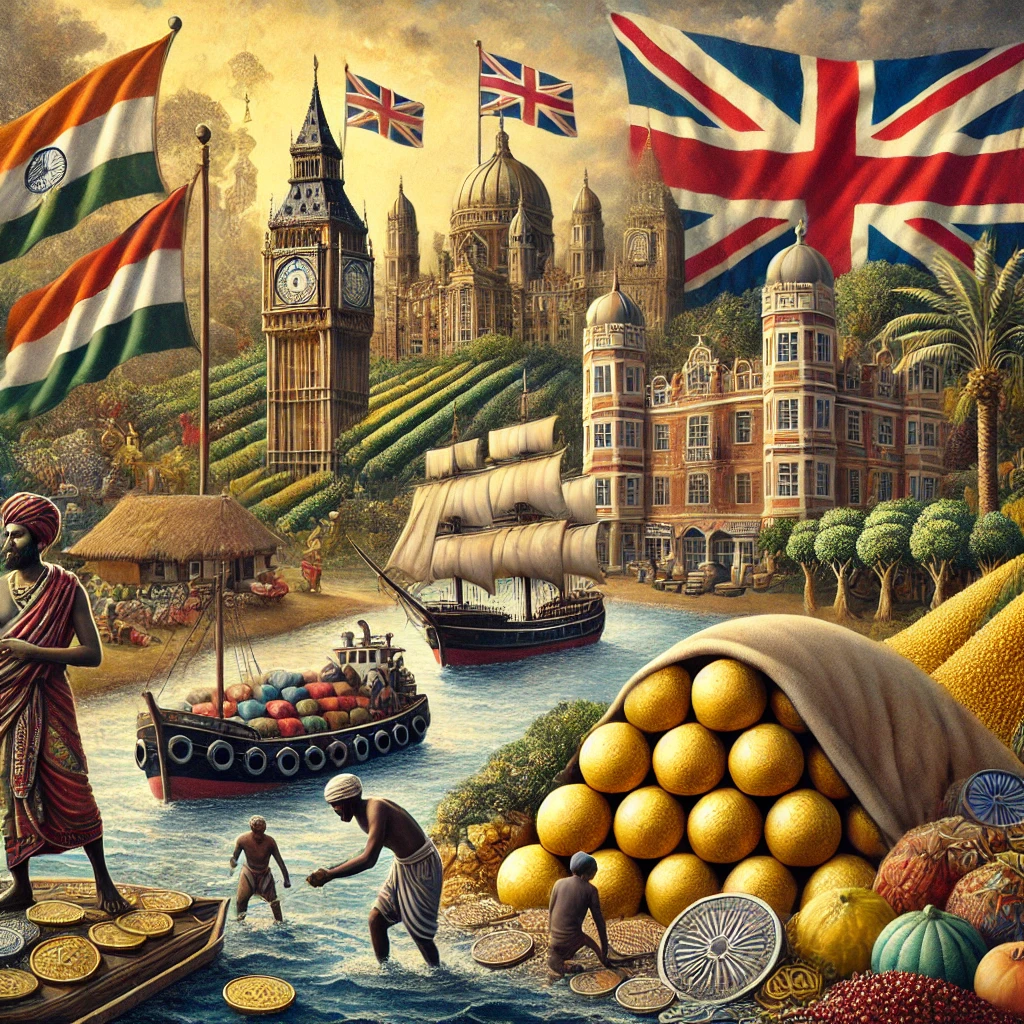
A shocking revelation about the colonial exploitation of India has surfaced, highlighting the staggering scale of wealth looted during British rule. Recent findings have disclosed that the United Kingdom’s top 10% of earners amassed nearly half of the $64.82 trillion siphoned from India over centuries. This wealth primarily enriched Britain’s elite while leaving millions of Indians in destitution.
The Unequal Distribution of Wealth
According to the report, an estimated $33.8 trillion of the looted wealth directly benefited the wealthiest 10% of the UK’s population. These individuals used the resources to solidify their economic dominance, creating generational wealth that continues to sustain the upper echelons of British society.
Exploitation That Changed India Forever
During the British Raj, India was systematically exploited for its resources, labor, and riches. The drain of wealth, described by historians as the economic deconstruction of India, led to widespread poverty, famine, and a loss of self-sufficiency. While British industries thrived, India’s economy was left crippled.
The stolen wealth included agricultural produce, precious minerals, and manufactured goods, all taken to serve British interests. Revenues were directed toward building infrastructure in the UK rather than supporting the colonies.
The Impact on Indian Society
The looting of wealth resulted in long-lasting consequences for India, which are still visible today:
- Extreme Poverty: The economic drain left millions of Indians impoverished and struggling for survival.
- Famine and Misery: Mismanagement of resources under colonial policies exacerbated famines, resulting in millions of deaths.
- Stunted Growth: India’s potential for industrial and agricultural growth was curtailed, delaying its development even after independence.
Legacy of Colonial Wealth
The stolen wealth not only enriched British elites but also transformed the UK into a global superpower during the colonial era. Many institutions, industries, and even landmarks in Britain owe their origins to wealth extracted from colonies like India.
Despite these historical injustices, calls for reparations or acknowledgment of the exploitation remain largely unanswered. Critics argue that the socio-economic inequalities created during colonial rule persist in various forms to this day.
Public Reaction
The revelations have sparked outrage among historians, economists, and citizens across the globe. Many are demanding that these findings be acknowledged in history books and taught as part of colonial studies. Social media has become a platform for debates on restitution and the moral responsibility of former colonial powers.
Conclusion
The history of British colonialism in India is a stark reminder of the human cost of economic greed. The latest revelations, which highlight how the UK’s richest 10% gained immense wealth at the expense of India’s population, are a call for greater awareness and accountability.
As these discussions gain momentum, there is hope that history will serve as a lesson in fostering equitable global relations and ensuring that such exploitation is never repeated.
Stay connected with Focus Global News for more insights on historical revelations and their impact on the present world.





